How to install Arch without pain ??
Foreword
I've heard that some people find Arch difficult to install. They're partly right, but for anyone who can figure out how to install and configure linux, installing Arch is pretty straightforward. It is also the most flexible distribution, so you can customize it better than other distributions.
This guide is a composite hodgepodge of all the guides that I have read (both Russian and foreign). Its goal is to show you a step-by-step installation of Arch and do it in Russian, simply and without unnecessary technical information . The main thing is that the article was written from the non-understanding for the non-understanding. I will say in advance that some screenshots will already be from the installed Arch , but this in no way changes the work of the commands and what you will see when using them.
So let's start simple.
Go to the site and download the ISO file:
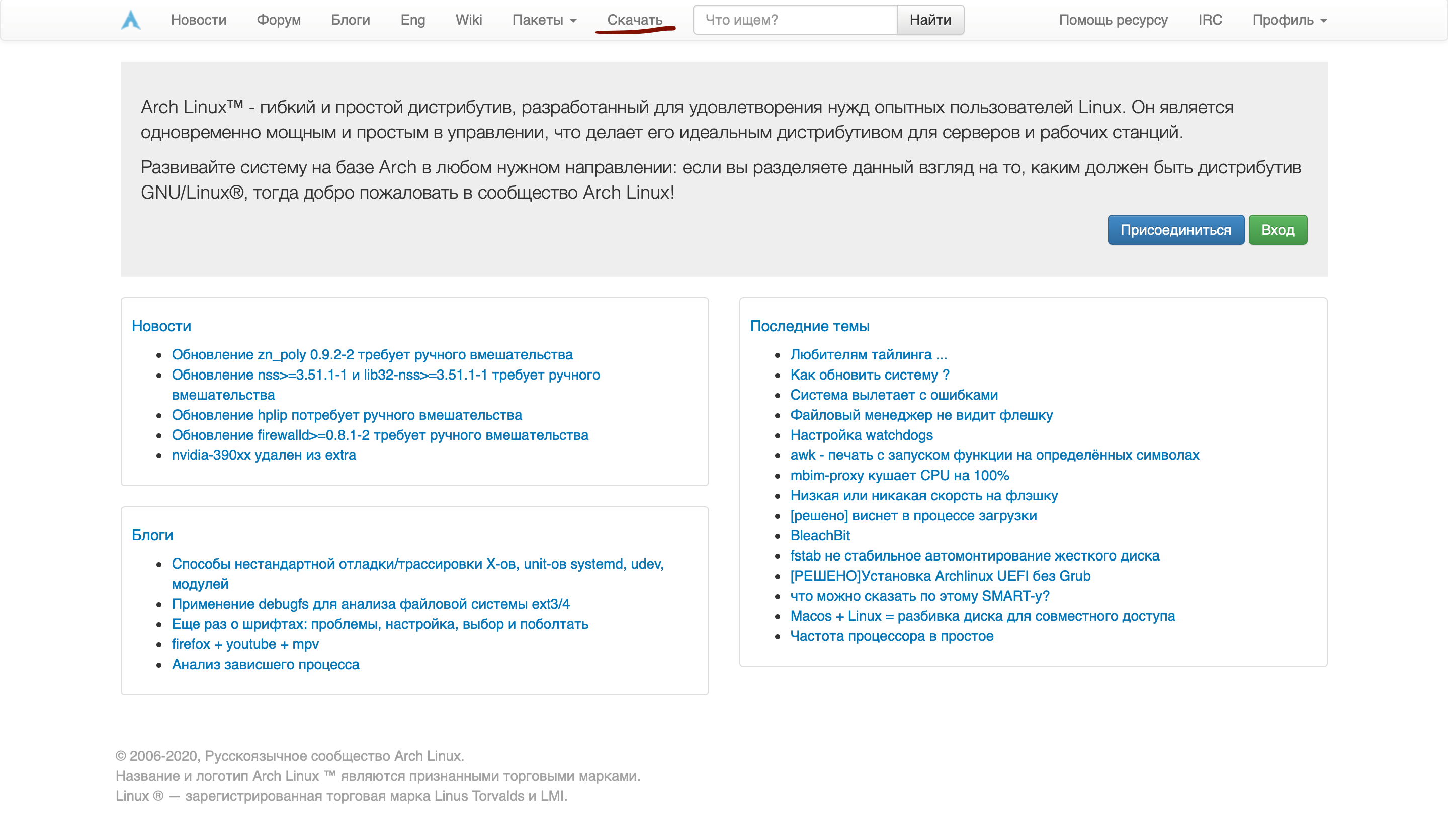
There we are looking for a mirror (most likely Russian) and download the image:

To simplify further life, it is better to download Etcher , right on the site there is a pretty clear instruction in pictures, so everyone can handle it.
Installation
// VirtualBox, ,
1. :
2. '' EFI'':

3. , IDE

.
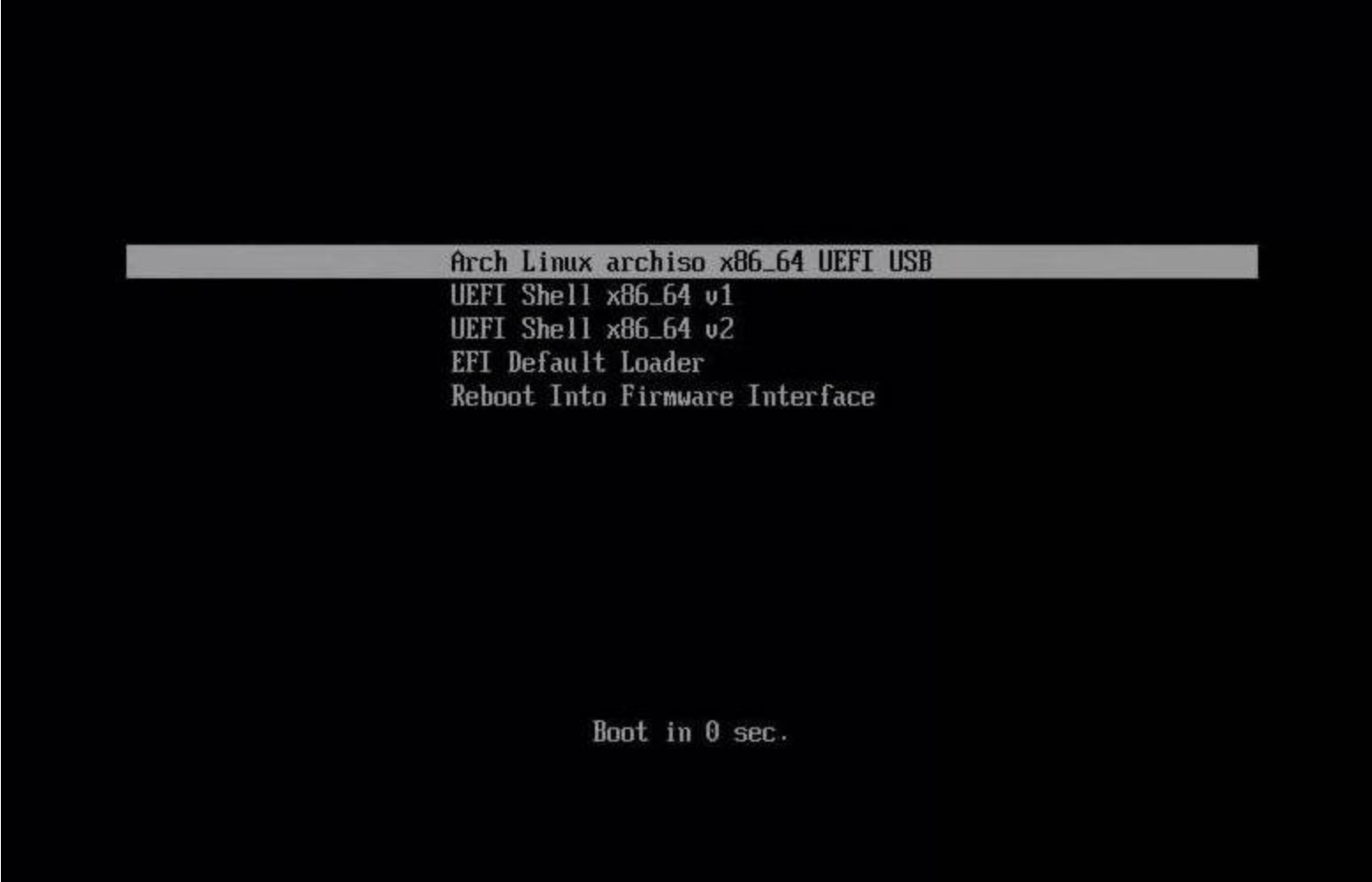
Enter
:
, Arch .
.
ping -c 3 google.com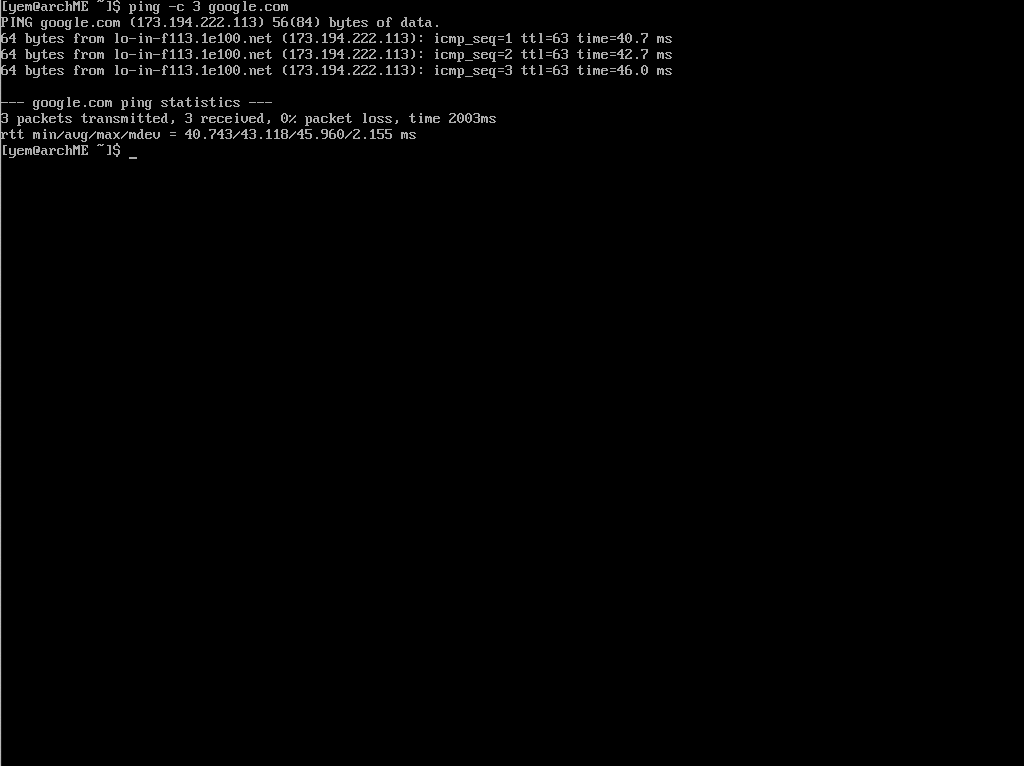
wifi , :
wifi-menu:
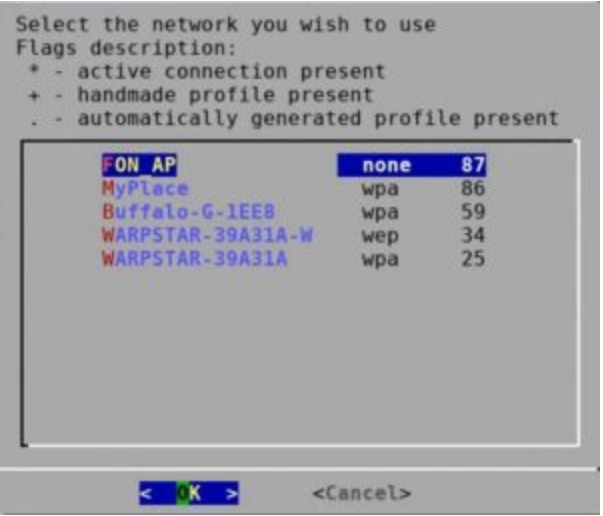
, , . USB HDD\SSD .
( ):
lsblk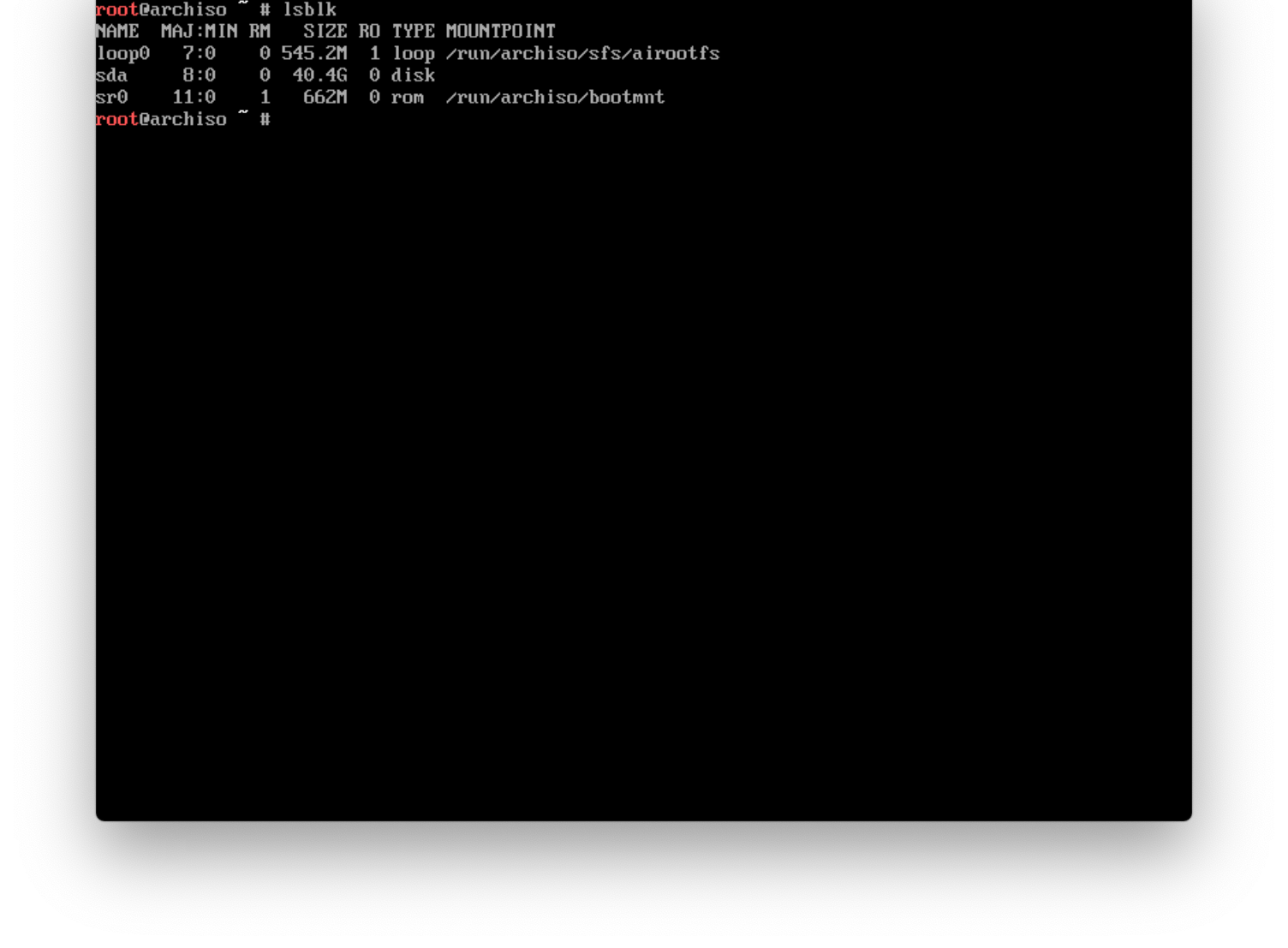
, - , .
fdisk -l
. cfdisk gpt :
cfdisk /dev/sda
B! lsblk fdisk sda , , , sdb.
3 :
- /dev/sda1 # 1G UEFI
- /dev/sda2 # 10-15 GB root
- /dev/sda3 # home
PS: ,
lsblk . , /dev/sda 3 .
.
, UEFi
mkfs.fat -F32 /dev/sda1
root
mkfs.ext4 /dev/sda2
home
mkfs.ext4 /dev/sda3
root home:
mount /dev/sda2 /mnt
mkdir /mnt/home
mount /dev/sda3 /mnt/home lsblk

, . , nano, . vim ( ).
pacstrap -i /mnt base linux linux-firmware sudo nanoall yes. , , , .
fstab
genfstab -U -p /mnt >> /mnt/etc/fstabChroot
Chroot (change root) , root ( ).
arch-chroot /mnt /bin/bash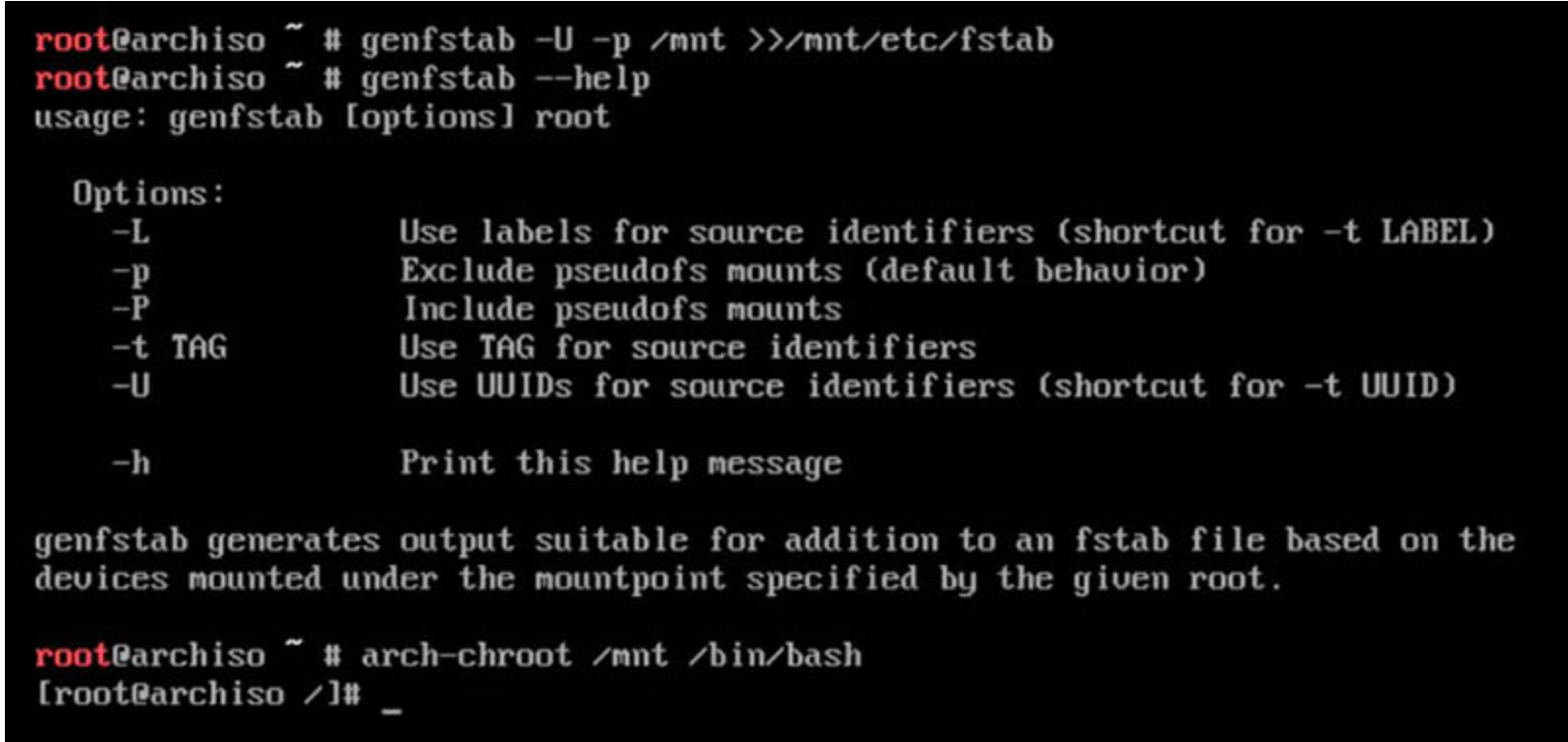
,
nano /etc/locale.gen
#en_US.UTF-8 #, . PS: Ctrl + W .
Ctrl + O, Enter Ctrl + X, Enter
, locale.conf .
locale-gen
echo "LANG=en_US.UTF-8" > /etc/locale.confln -sf /usr/share/zoneinfo/2 Tab , .
:
ln -sf /usr/share/zoneinfo/Europe/Kaliningrad /etc/localtime2 . , .
hwclock --systohc --utc
dateArchMe, :
echo ArchMe > /etc/hostnamelocalhosts ip. ip , .
nano /etc/hosts
127.0.1.1 localhost.localdomain ArchMe.
pacman -S networkmanager
systemctl enable NetworkManager GRUB
root :
passwdGRUB — , , ( EFI). , .
pacman -S grub efibootmgr
mkdir /boot/efi
mount /dev/sda1 /boot/efi
lsblk #
grub-install --target=x86_64-efi --bootloader-id=GRUB --efi-directory=/boot/efi --removable
grub-mkconfig -o /boot/grub/grub.cfg:
exit
umount -R /mnt
reboot. , GRUB
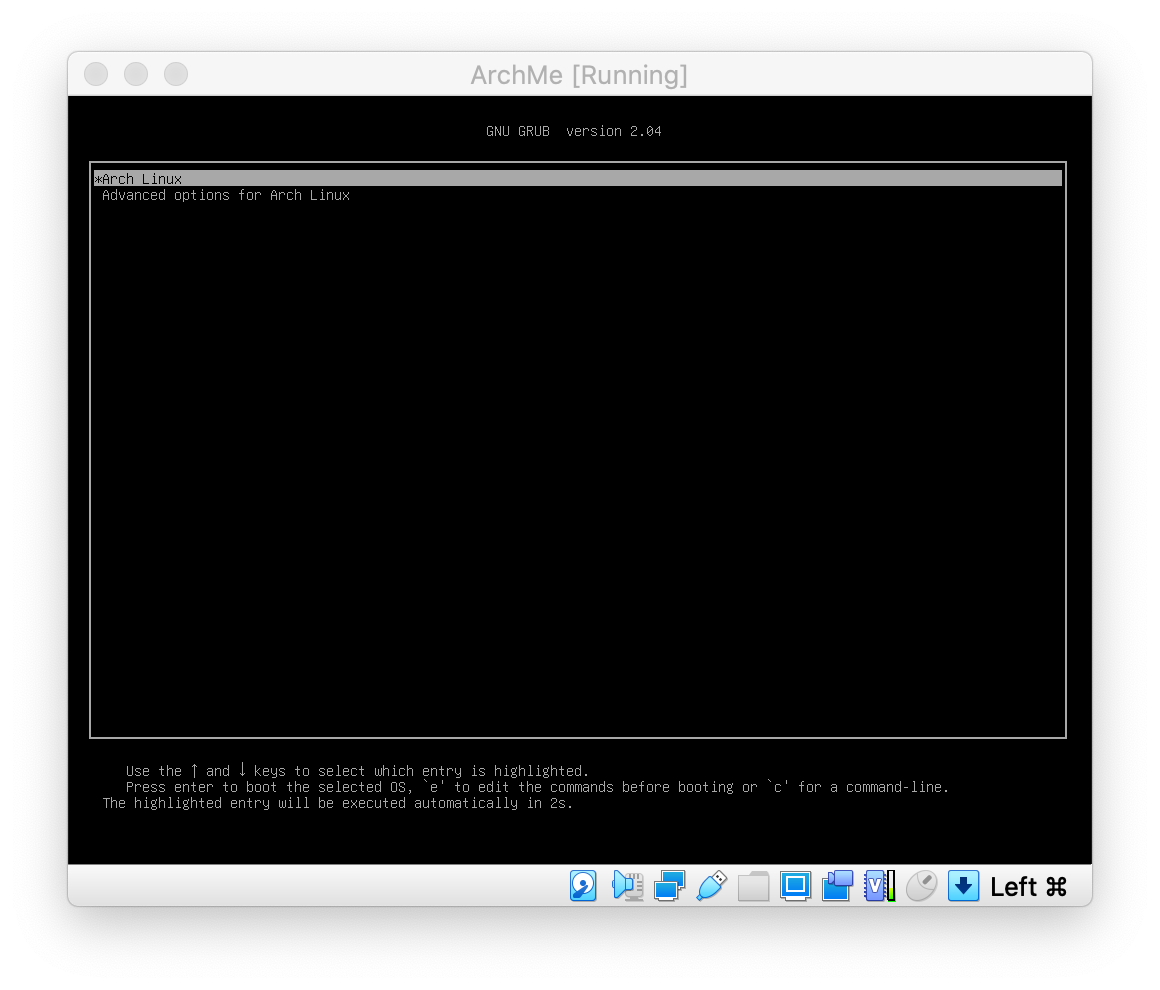

root swapfile (- )
fallocate -l 3G /swapfile:
chmod 600 /swapfile
mkswap /swapfile
swapon /swapfile
echo '/swapfile none swap sw 0 0' >> /etc/fstab, swap:
free -museradd -m -g users -G wheel -s /bin/bash username
passwd usernameusername , )
:
EDITOR=nano visudothere we look for and remove #, and then Ctrl + O , then Enter and Ctrl + X , then Enter
# %wheel ALL=(ALL) ALLFirewood
pacman -S pulseaudio pulseaudio-alsa xorg xorg-xinit xorg-serverYou will be offered a choice, choose based on your schedule.
Environment
First, I'll show you how to install a fairly simple XFCE
pacman -S xfce4 lightdm lightdm-gtk-greeter
echo "exec startxfce4" > ~/.xinitrc
systemctl enable lightdmAnd my favorite i3, there we select packages 2 4 5. You may see squares instead of symbols, but that's ok, you just need to download the font dejavu ( pacman -S ttf-dejavu). The list of hotkeys can be found here
echo "exec i3" > ~/.xinitrc
sudo pacman -S i3
If you decide to change your environment, you will need to change the entry in the xinitrc file .
To start your environment use
startx